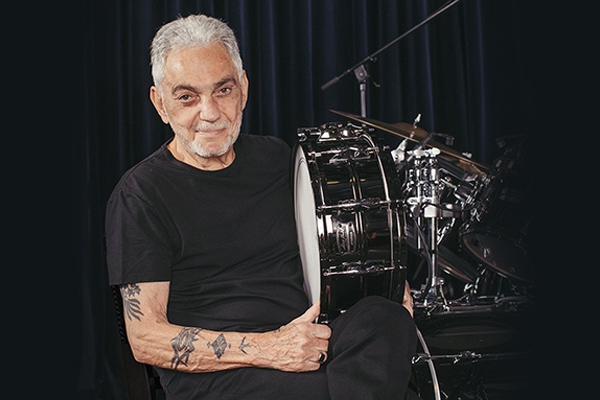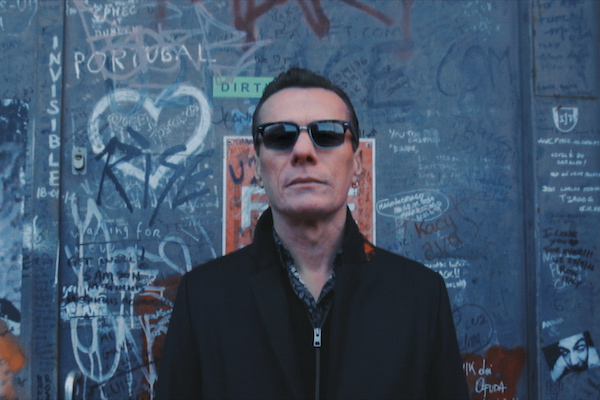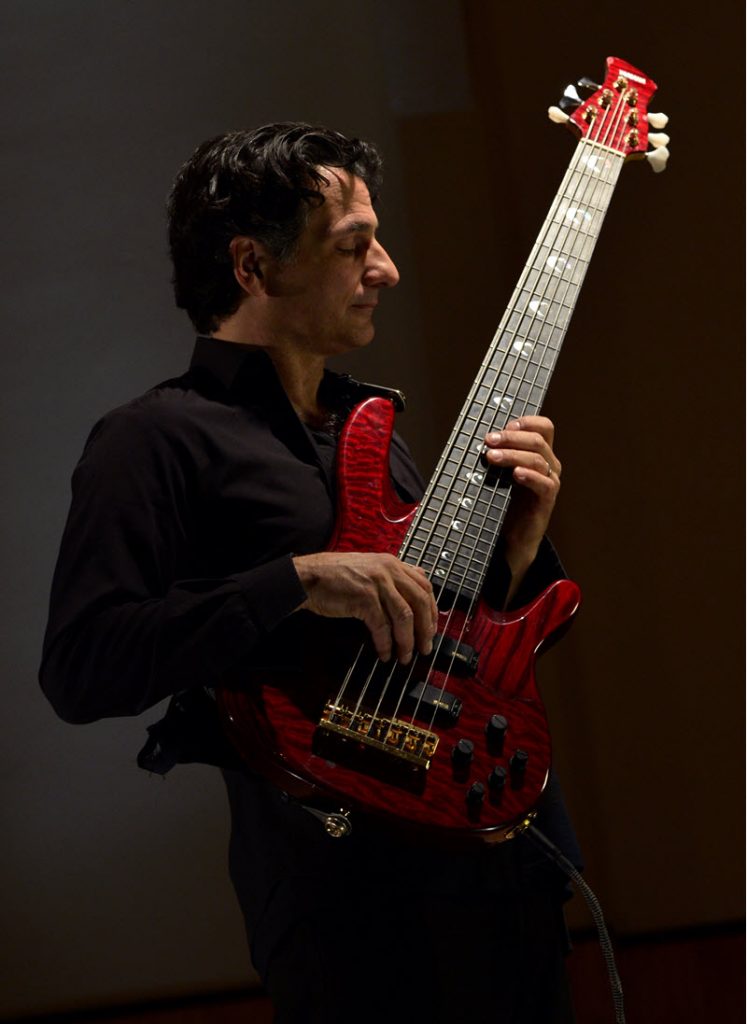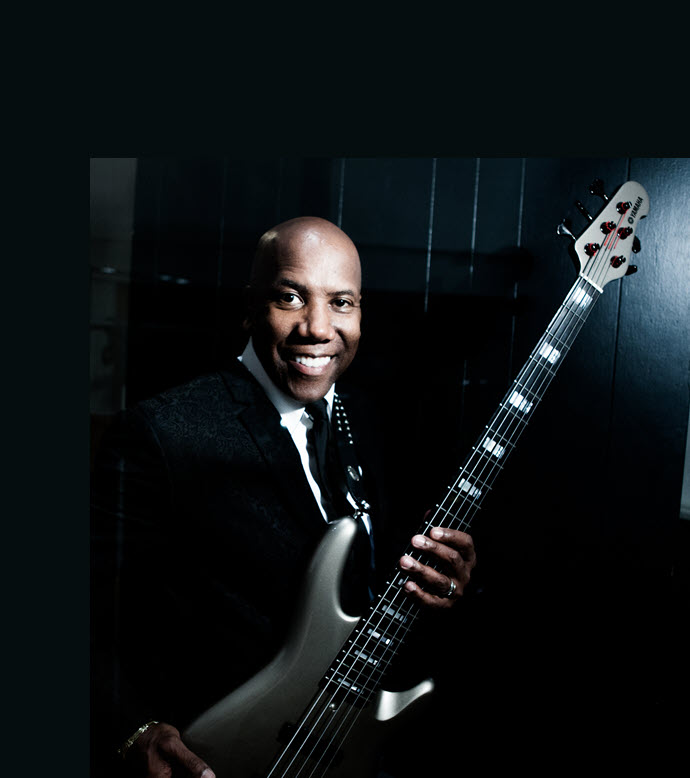Tagged Under:
Setting the Foundation
A conversation with Sonny Emory and Nathan East.
Drummer Sonny Emory and bassist Nathan East comprise one of the most solid rhythm sections in music. The reason is that they are tight — not just in the musical sense, but in terms of a steadfast friendship that has lasted for over 30 years.
Their credentials are impeccable. The Atlanta-born Emory started drumming at the age of 4 and moved to Los Angeles twenty years later, where he began playing with Joe Sample and the Crusaders. From 1987 to 1999 he held down the drum chair with the legendary R&B group Earth, Wind & Fire, and served as a member of Bruce Hornsby’s Noisemakers band from 2002 to 2018. In the course of his career, he has recorded and/or performed with a virtual who’s who in pop and jazz music, including Eric Clapton, Stanley Clarke, David Sanborn, Bette Midler, Al Jarreau, Paula Abdul, Jean-Luc Ponty and Boz Scaggs. A graduate of Georgia State University with a B.A. in Jazz Performance, Emory has long had an ongoing commitment to academia and currently serves as part-time professor of applied percussion at Georgia State University. His rock/funk group The 7eventh Time (formed with his sons sons Nic Gibran and Ni Emory) recently released their debut single, “Lost in the Sunshine.”
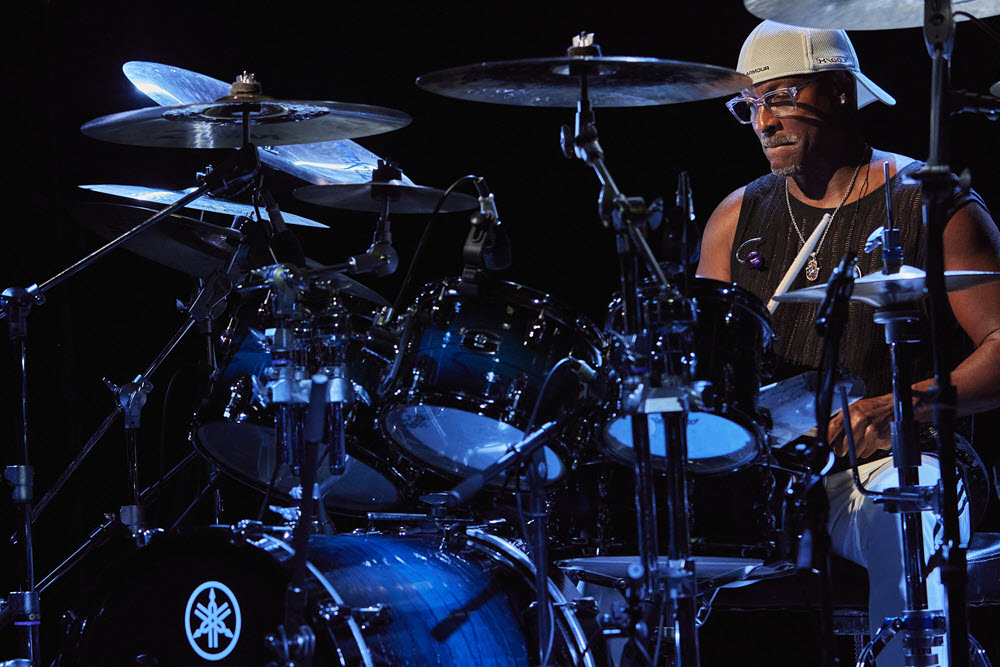
Nathan East is well-known as one of the top session and touring bassists in the world. A founding member of the chart-topping contemporary jazz group Fourplay, he was 16 years old when he got his first break and found himself on the road with Barry White. For the last forty years, he has been churning out hit songs with legendary artists like Eric Clapton, George Harrison, Michael Jackson, Phil Collins, Whitney Houston, Beyoncé, Barbra Streisand and Stevie Wonder. His genre-crossing groove has earned him recognition — including a Congressional Record for his contributions to the worldwide music community — and the respect of his peers, as illustrated by his appearances on hit records as diverse as Andrea Bocelli’s Passione and Daft Punk’s Random Access Memories.
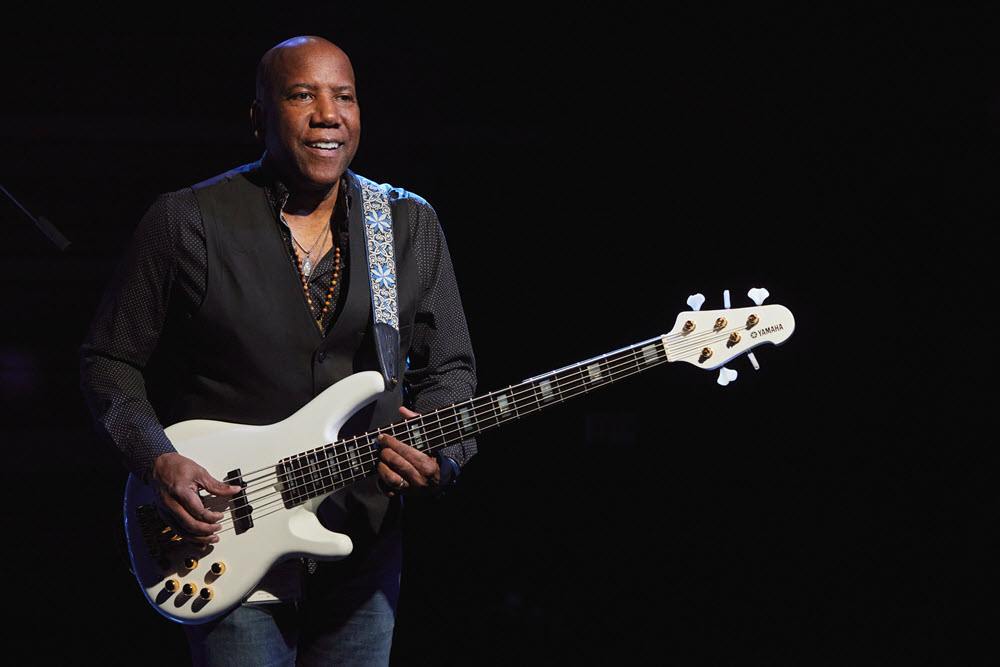
Another commonality shared by the two is that they are both Yamaha Artists. We recently caught up with Emory and East as they discussed what it takes to build a foundation on which great music can be made.
FINDING THE GROOVE
Sonny Emory: We’re a team and we’re hired to create something together that supports the artist. Every night is special for us because we approach it with love and passion, and we’re trying to get better every night.
Nathan East: You dig a groove, and you just keep getting deeper. And pretty soon you can’t get out of it.
Sonny: Into a hole you can’t get out of, known as the pocket.
Nathan: Exactly.
Sonny: It is very, very important for the bass and drums to become basically one instrument, and then you build the musical house on that one foundation. But it takes two willing parties to be able to find out where the other party is living and meet in the middle so that you can create something together.
Nathan: Listening is such a big part [of it], listening and trusting, because whenever I put a note down, it [should be] with the bass drum simultaneously, and [with Sonny] I don’t have to worry that it’s going to be in front or behind. You just trust this one location where that downbeat is going to be. And for me, every bar is the new downbeat, a new opportunity to get it right.
Sonny: When you do that as a duo consistently, that is what creates that groove. Any bass/drum duo that you’ve heard in the past has been really successful as far as the groove.
Nathan: Especially with our instruments, drum and bass, the most important thing is consistency. We have to be a constant, and I try to maintain that constant energy and attitude.
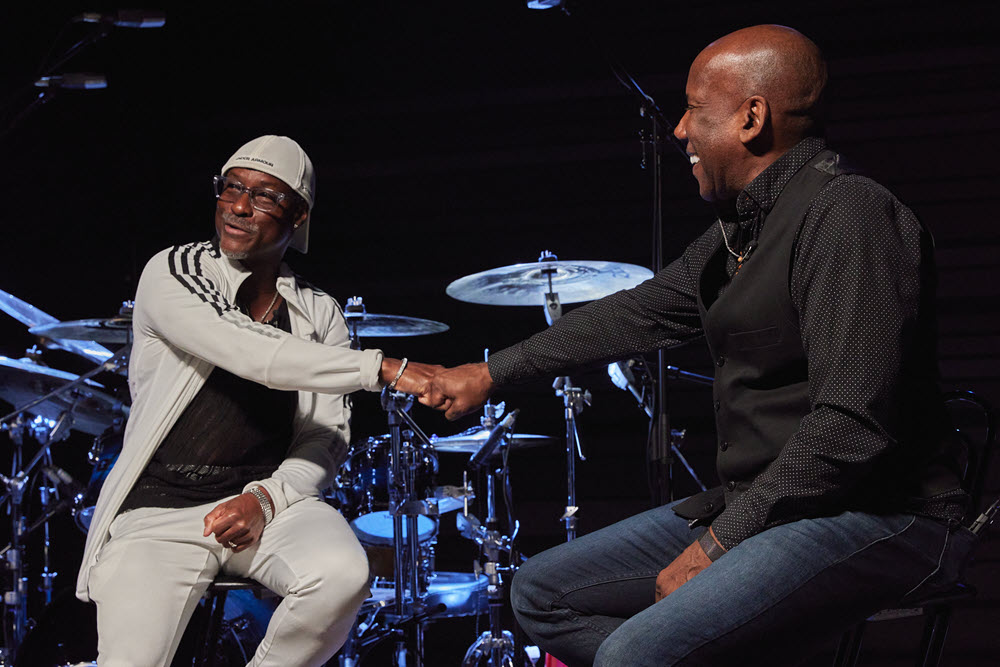
THE IMPORTANCE OF FOCUS
Nathan: You know, it’s easy to start off with focus. You start the tune and you’re concentrating, but then as it goes on, a lot of people will [begin to] drift. Pretty soon it’s not as focused toward the end. But up until the last note, it has to be focused. That’s one of the things that Joe Sample always tried to drill into us: Don’t just start and then let it go.
Sonny: There’s a mental kind of telepathy thing that we have to do. Nate is standing in front of me and downstage, but I’m always out of the corner of my eye looking at his body language, checking out how he’s feeling, what we need to feel. We’re navigating the hole, and we have a lot of fun [doing it]. The fun is the challenge of being able to lock that groove in and make it feel the way it’s supposed to feel every night.
Nathan: For me, the drums are the DNA, the ground zero for the beat, the groove, the song, the dynamics.

Sonny: The bass to me plays a similar role. I would go even as far as to say that the bass is the glue. I’m trying to lay the concrete, here comes the glue for the other parts. And of course, Nathan plays so beautifully, so melodically as well as [laying down] the foundation of the groove and has mastered how to do both, basically simultaneously without getting in the way of or detracting from either one. I know I can depend on him. That’s what you need. You want to have your best guy with you to make sure that you win.
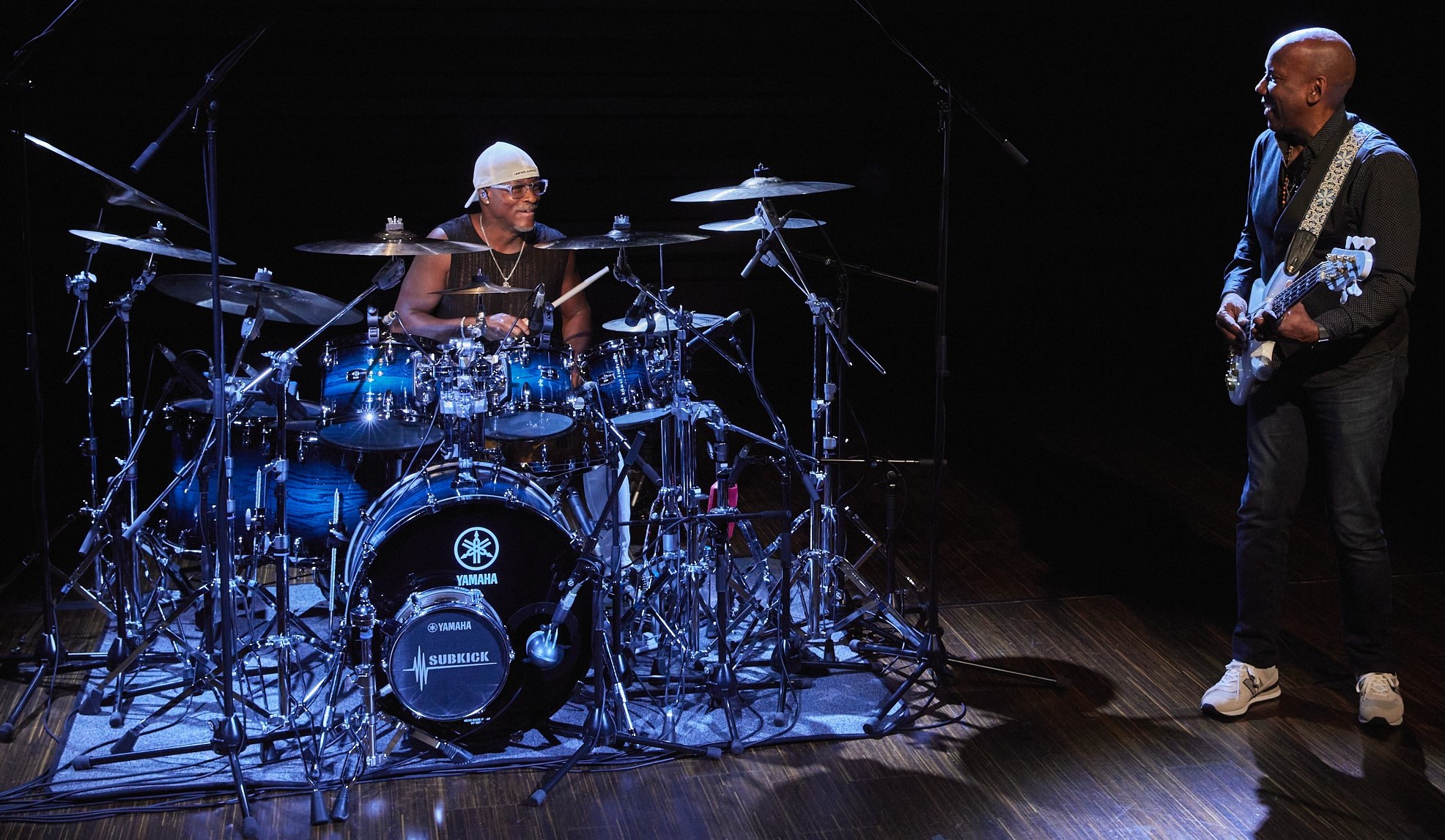
Nathan: Sometimes I look at it as, say, a basketball team. Did we win the game tonight? When we go out there, we have to not be individuals, we have to pass the ball to each other. We have to think in terms of, ‘What’s going on around me and how am I going to be able to help the conversation and be here to serve?’
Sonny: And to assist. There are nights where sometimes there may be a little quirky something, but we all have to have each other’s back in order for us to stay the course and win the game together, not [just] the quarters. You want to win the whole game. It’s not enough to just play two or three songs great. That set overall needs to be a good set.
Nathan: A great set. But we’re not talking about perfection. If there’s a clam or a mistake, you get to see what you’re made of. Steve Ferrone used to say, never make the same mistake once. But the times that I feel it just tickle are when you simply put that groove down there. It’s infectious and it’s a lovely thing.
Sonny: And the audience, they feel that right away. If you do that from beat one and you try to make that your goal, every bar of every song, they feel it. It’s an emotional thing. Especially when it starts on the bottom, everything on the top is just icing. The challenge is concentrating for a complete hour and a half. Not 30 minutes, not 42 minutes, not 60 minutes. 90 minutes from the first beat to that last downbeat.
Nathan: Your intensity [has to be] as strong on the last song as it is on the first song. In order to win, you’ve got to push it.
Sonny: You can’t drop the ball an hour and 15 minutes into the game; you don’t want to fumble with two minutes left in the fourth quarter if you’re about to score.
ADVICE TO YOUNG MUSICIANS
Sonny: Well, good luck! [laughs] You’ll need a little bit of that, too. Nathan has always been a musician that I’ve admired, not simply because of his mastery of the instrument and his musicality, but because of the person that he is. He’s a very, very genuine person. He’s grounded. I tried to model myself after guys like Nate who live life with integrity and play music with integrity, always a gentleman, well-rounded. That’s what I want to impress upon the younger guys now. But if you’re getting into music, be ready for some disappointments. You’re not going to always win, or the situations aren’t going to always turn out the way that you would hope for. Just continue to try and move forward. Stay true to the craft.
Nathan: Music is what we do, but we do it with so much love and passion, it almost becomes who the person is. But I think you make a good point when you stress the human element and the humanity that comes with your playing as well. And this is one of those things that shouldn’t have anything to do with how much you’re making. You still should bring the same love, whether the gig is for 20 people or 20,000 people. You’re not going to play less, and you’re not going to be less of a person. And you can’t do it for followers, for likes, for money. No. It has to be something that you love.
Sonny: The ups and the downs are going to come. But if you have the love for [music], the love will get you through those down periods. That’s what keeps motivating you to continue to move forward.
THE NEW MUSICAL PARADIGM
Nathan: We’re in a completely different music environment [today] than when we started playing.
Sonny: The paradigm has definitely shifted. This is a totally different industry.
Nathan: Young musicians have to figure out how to navigate this paradigm, just like we had to figure it out when we started out. It’s a people business, and every time you get on stage, there are eight other people over there, each with their own story, each with their own life. I’m not as concerned with telling my story as I am about finding out what everybody else’s story is. That keeps you curious. It keeps you passionate, and you learn, and you listen as much as you can.

Sonny: When you stop learning, it’s over. It really is. You stop growing the minute you stop learning.
Nathan: And if you’re up there, be careful [because] it can change in an instant.
Sonny: Which is why staying grateful is very important. So stay grateful, stay humble, and stay hungry. Stay learning. Continue to just become a better version of yourself.
Learn more about Sonny Emory here.
Learn more about Nathan East here.













